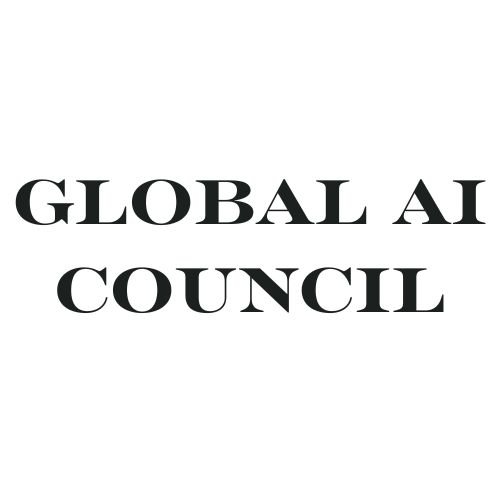AI and the Job Market: Preparing for an Automated Future
Artificial Intelligence (AI) is reshaping industries and transforming the job market at an unprecedented pace. As automation and AI technologies continue to advance, they bring both opportunities and challenges to the workforce. Preparing for an automated future requires understanding the potential impacts of AI on jobs, developing new skills, and implementing strategies to ensure a smooth transition. Here’s how AI is affecting the job market and what we can do to prepare for the changes ahead.
1. The Impact of AI on Jobs
AI and automation are expected to significantly alter the job landscape. While some jobs will be displaced by machines, new opportunities will also emerge.
Job Displacement: AI can automate repetitive and routine tasks, which may lead to the displacement of certain jobs. Industries such as manufacturing, retail, and customer service are particularly susceptible to automation. For instance, self-checkout kiosks in retail stores and robotic process automation in manufacturing can reduce the need for human labor in these roles.
Job Creation: On the flip side, AI is also creating new job opportunities. Roles in AI development, data science, and cybersecurity are in high demand. Additionally, jobs that require human creativity, emotional intelligence, and complex problem-solving are less likely to be automated and will continue to be valuable.
2. Skills for the Future
As AI transforms the job market, the skills required to thrive in the workforce are also changing. Preparing for an automated future involves developing new skills and adapting to the evolving demands of the job market.
Technical Skills: Proficiency in AI, machine learning, and data analysis will be highly sought after. Learning to work with AI tools and technologies can open up new career opportunities. Programming languages such as Python and R, as well as knowledge of AI frameworks like TensorFlow and PyTorch, are particularly valuable.
Soft Skills: While technical skills are crucial, soft skills will also play a significant role in the future job market. Skills such as critical thinking, creativity, emotional intelligence, and communication will remain essential. These skills enable individuals to perform tasks that AI cannot easily replicate, such as managing teams, fostering innovation, and building relationships.
Lifelong Learning: The rapid pace of technological change means that continuous learning is more important than ever. Embracing a mindset of lifelong learning and staying updated with the latest advancements in AI and related fields will help individuals remain competitive in the job market.
3. Education and Training
Educational institutions and training programs must adapt to prepare the workforce for the AI-driven future. This involves updating curricula, offering new courses, and providing hands-on learning experiences.
STEM Education: Emphasizing science, technology, engineering, and mathematics (STEM) education is crucial. Encouraging students to pursue STEM fields can equip them with the foundational knowledge needed for AI-related careers.
Vocational Training: Vocational and technical training programs can help individuals develop the specific skills required for jobs in the AI and automation sectors. Partnerships between educational institutions and industries can ensure that training programs are aligned with the needs of the job market.
Reskilling and Upskilling: For the existing workforce, reskilling and upskilling initiatives are essential. Employers and governments can collaborate to offer training programs that help workers transition to new roles or enhance their skills in their current positions. Online courses, workshops, and bootcamps are valuable resources for continuous learning.
4. Supporting Workers Through Transition
As AI transforms the job market, it is important to support workers who may be affected by job displacement. Social safety nets and policies can help mitigate the impact and facilitate a smoother transition.
Unemployment Benefits: Strengthening unemployment benefits and providing financial support to displaced workers can help them during the transition period. This support can include extended unemployment benefits, retraining subsidies, and job placement assistance.
Career Counseling: Career counseling and guidance services can help individuals navigate the changing job market. Providing resources and support for career planning, job searching, and skill development can empower workers to find new opportunities.
Workforce Development Programs: Government and private sector initiatives focused on workforce development can play a key role in preparing for the automated future. These programs can offer training, apprenticeships, and mentorship opportunities to help workers acquire new skills and transition to emerging job roles.
5. Ethical Considerations and Policies
The widespread adoption of AI in the job market raises ethical considerations that must be addressed through policies and regulations.
Fair Labor Practices: Ensuring fair labor practices and protecting workers' rights is essential. Policies should prevent exploitation and ensure that workers are treated fairly in the AI-driven economy.
Equitable Access: It is important to ensure that all individuals have access to education, training, and job opportunities. Policies that promote equitable access can help bridge the digital divide and ensure that the benefits of AI are distributed fairly across society.
Responsible AI Development: Developing AI systems responsibly and ethically is crucial. This includes addressing biases in AI algorithms, ensuring transparency and accountability, and considering the broader societal impacts of AI.
Conclusion
AI is transforming the job market, bringing both challenges and opportunities. Preparing for an automated future involves understanding the impact of AI on jobs, developing new skills, and supporting workers through the transition. By investing in education and training, promoting lifelong learning, and implementing supportive policies, we can navigate the changes brought by AI and build a resilient and inclusive workforce. Embracing the potential of AI while addressing its ethical implications will help create a future where technology enhances human capabilities and improves overall quality of life.
